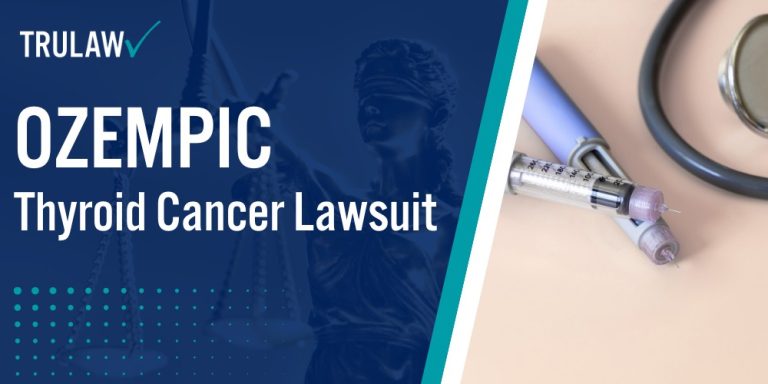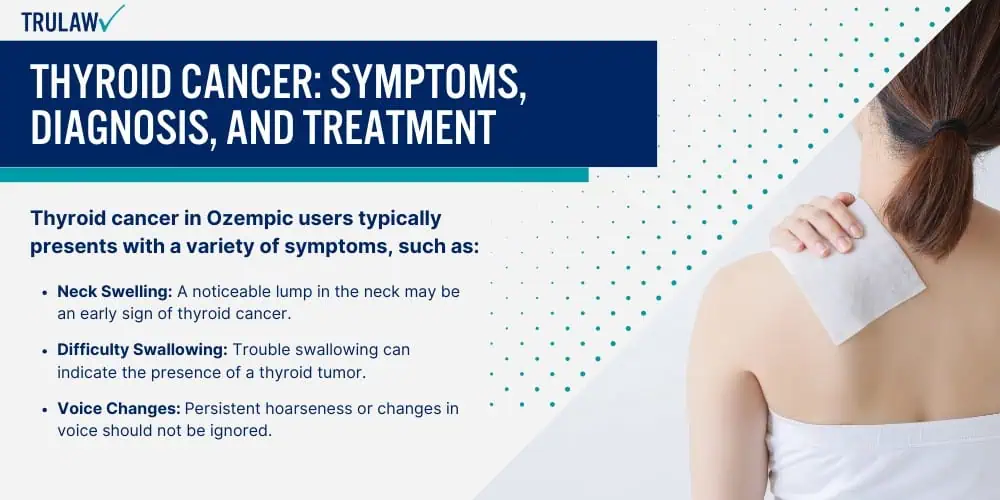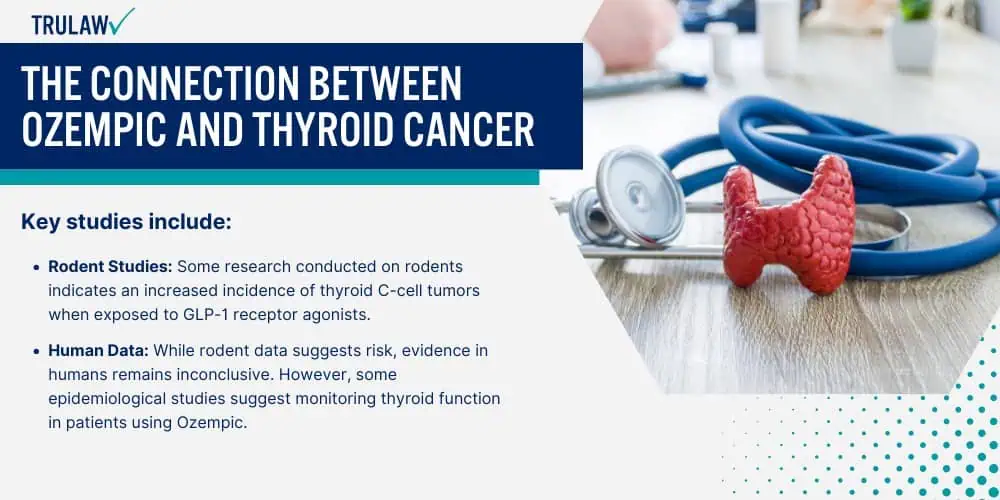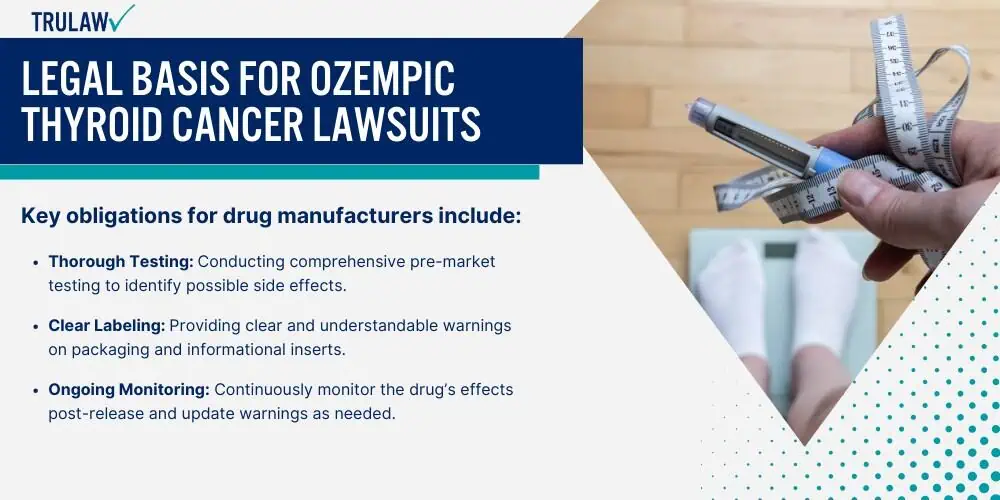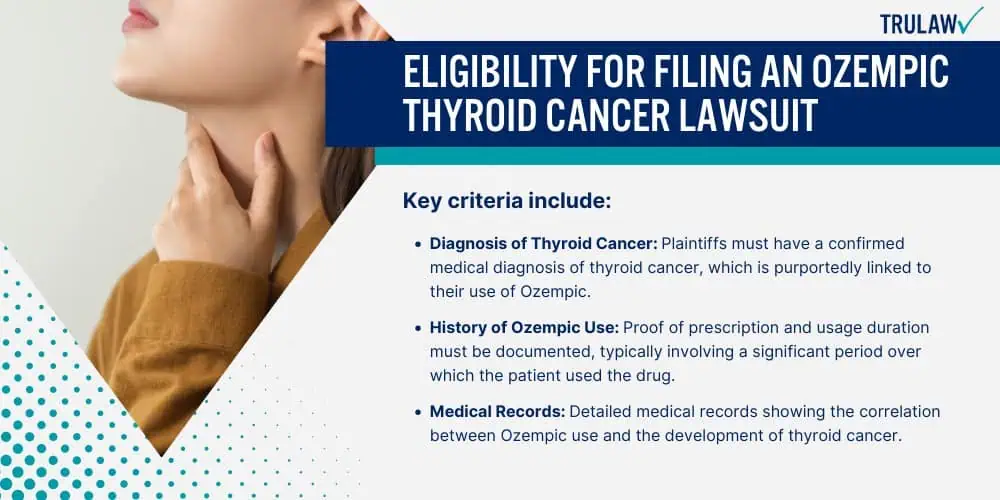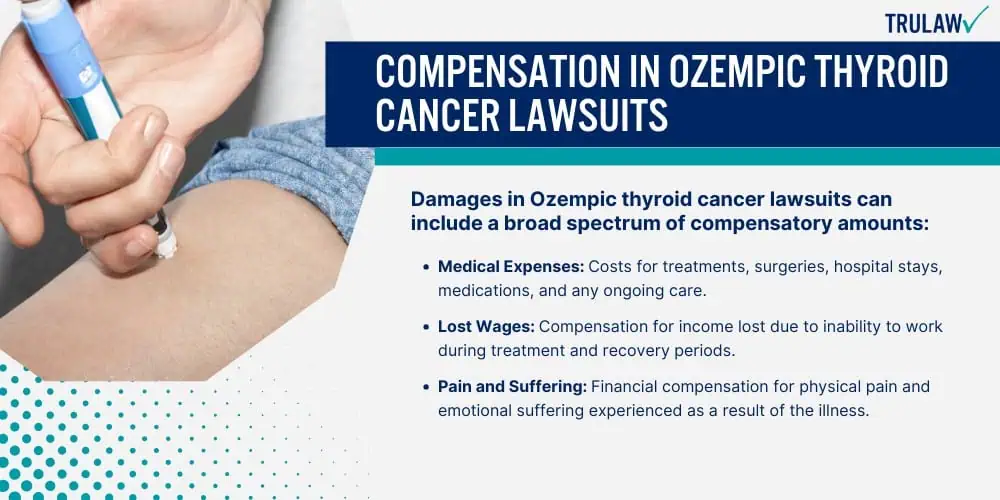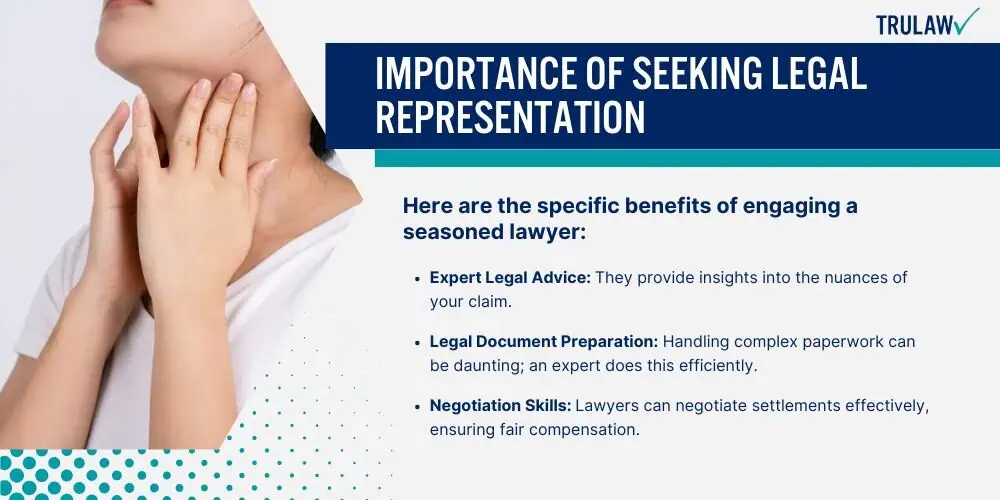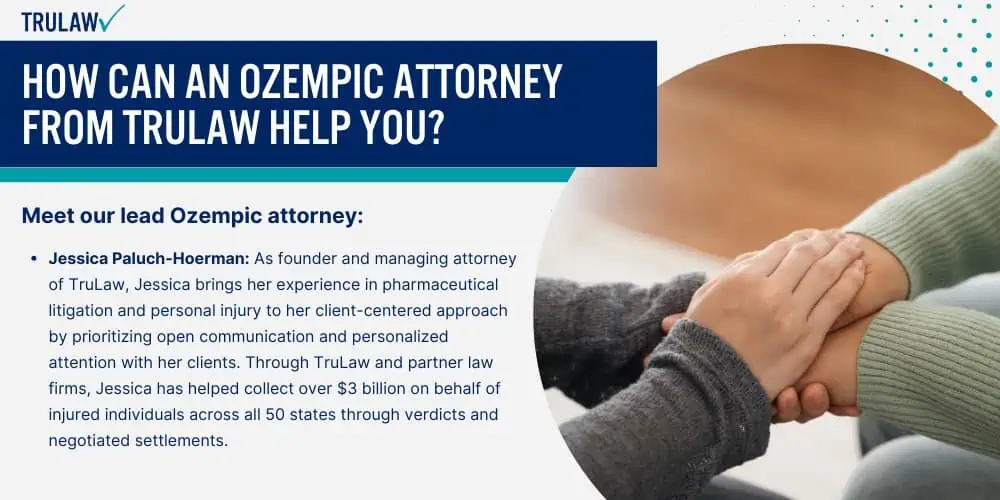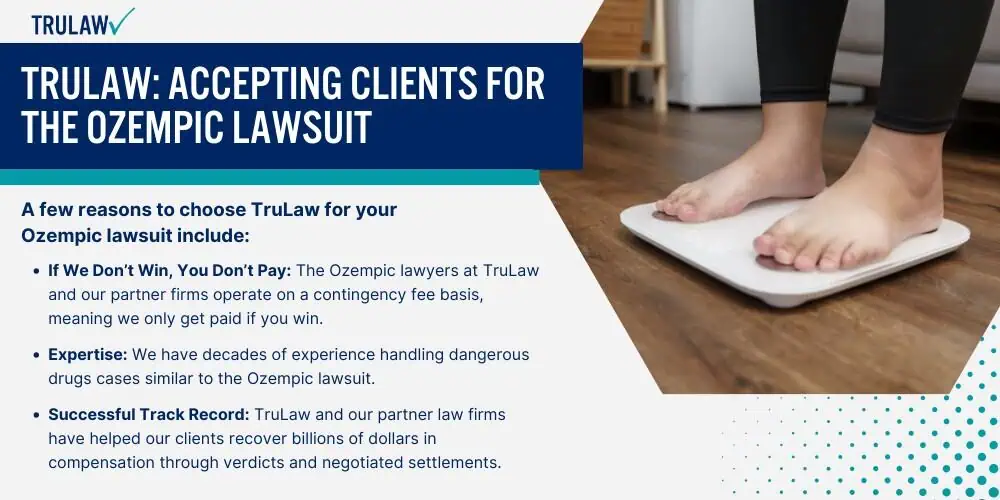Ozempic is widely prescribed to manage type 2 diabetes but carries specific risks, including a potential link to thyroid cancer.
It’s essential to understand these risks and how Ozempic functions.
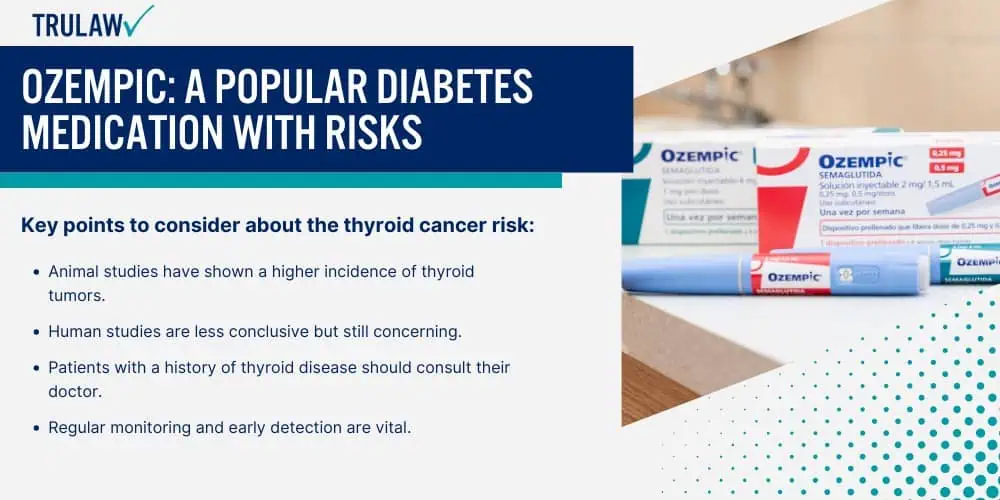
Understanding the Link Between Ozempic and Thyroid Cancer
There have been discussions about Ozempic’s association with an increased risk of thyroid cancer.
Some studies suggest that medications containing semaglutide, such as Ozempic, may increase the likelihood of thyroid tumors.
Patients and healthcare providers must remain vigilant for symptoms like neck masses or difficulty swallowing.
To file an Ozempic lawsuit, impacted individuals should consult with legal professionals to assess their situation.
They often need to provide evidence linking their health issues directly to Ozempic use.
The ongoing Olympic lawsuit emphasizes the need for pharmaceutical companies to ensure thorough testing and transparent communication regarding medication risks.
If the courts find in favor of the plaintiffs, the outcome could significantly impact the pharmaceutical industry’s practices and patient safety measures.
By comprehensively addressing these issues, the Ozempic Thyroid Cancer Lawsuit seeks to hold manufacturers accountable and provide justice for affected patients.
Key points to consider about the thyroid cancer risk:
- Animal studies have shown a higher incidence of thyroid tumors.
- Human studies are less conclusive but still concerning.
- Patients with a history of thyroid disease should consult their doctor.
- Regular monitoring and early detection are vital.
By understanding these risks, individuals can make informed decisions about their treatment options.
How Ozempic Works to Manage Type 2 Diabetes
Ozempic functions by mimicking the GLP-1 hormone to enhance insulin production, lower glucagon levels, and slow gastric emptying.
It helps to control blood sugar levels effectively, making it a valuable tool to treat diabetes.
Mechanisms of action include:
- Stimulating insulin secretion when blood sugar is high.
- Reducing the amount of glucose the liver releases.
- Slowing down food transit time in the stomach.
- Helping patients feel full, aiding in weight management.
With these actions, Ozempic offers comprehensive glycemic control, benefiting those struggling with type 2 diabetes.
Potential Side Effects and Risks Associated with Ozempic
Like all medications, Ozempic has side effects and risks.
Common side effects include nausea, vomiting, and diarrhea.
More severe concerns, such as the risk of thyroid cancer, have garnered attention.
Possible side effects are:
- Gastrointestinal issues like nausea or constipation.
- Potential increased risk of thyroid cancer.
- Pancreatitis and changes in vision.
- Hypoglycemia when used with other antidiabetic drugs.
Patients should discuss these potential side effects with their healthcare provider to weigh the benefits and risks effectively.
Understanding the possible severe health complications is crucial for making an informed choice about using Ozempic to treat diabetes, while remaining alert to any adverse symptoms.
